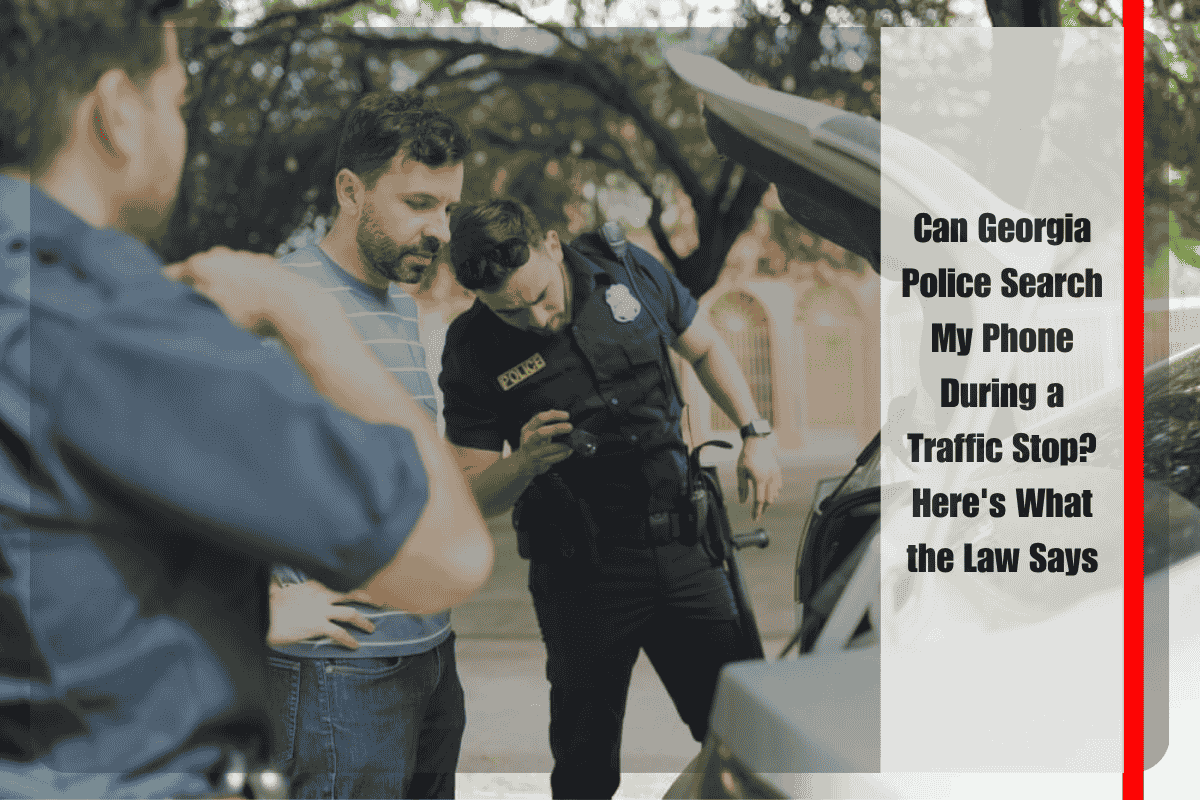Under current law, Georgia police cannot search the contents of your cell phone during a routine traffic stop without either your consent or a valid warrant. The Fourth Amendment to the U.S. Constitution protects individuals from unreasonable searches and seizures, and this protection extends to your cell phone, which contains vast amounts of personal information.
If you are pulled over for a traffic violation, police may ask for your license, registration, and proof of insurance, but they do not have the right to demand access to your phone unless they have probable cause and obtain a warrant. Police can ask for your consent to search your phone, but you are not required to give it. If you do consent, then a warrant is not needed, and officers may legally search your device. If you refuse consent, police must secure a warrant before searching your phone, unless a recognized exception to the warrant requirement applies.
There are a few exceptions. If police arrest you, they may seize your phone as part of the arrest process, but they still generally need a warrant to search its contents. The U.S. Supreme Court ruled in Riley v. California (2014) that police must obtain a warrant before searching a cell phone seized incident to arrest, unless there are exigent circumstances (for example, an imminent threat to safety or risk of evidence being destroyed). However, such circumstances are rare and narrowly interpreted.
Additionally, police may use your fingerprint or face to unlock your phone if you are compelled to do so by a court order or warrant. However, you have the right to refuse to provide your passcode or password, as this is considered testimonial evidence and is protected by the Fifth Amendment against self-incrimination.
Georgia police cannot search your phone during a traffic stop without your consent or a warrant. You have the right to refuse consent and should be aware of your rights if asked for access to your device. If police proceed without your consent or a warrant, any evidence obtained may be inadmissible in court.
Sources
[1] https://www.adkinsdouglaslaw.com/blog/2025/05/phone-rights-to-know-when-dealing-with-georgia-police/
[2] https://www.govtech.com/public-safety/can-police-search-your-phone-during-a-traffic-stop
[3] https://www.peachstatelawyer.com/your-rights-during-traffic-stops-and-police-searches-without-warrants-what-you-need-to-know/
[4] https://www.davidyannetti.com/articles/do-i-have-to-give-police-access-to-my-phone-during-a-traffic-stop/
[5] https://www.conawayandstrickler.com/blog/when-can-law-enforcement-search-my-cell-phone/












